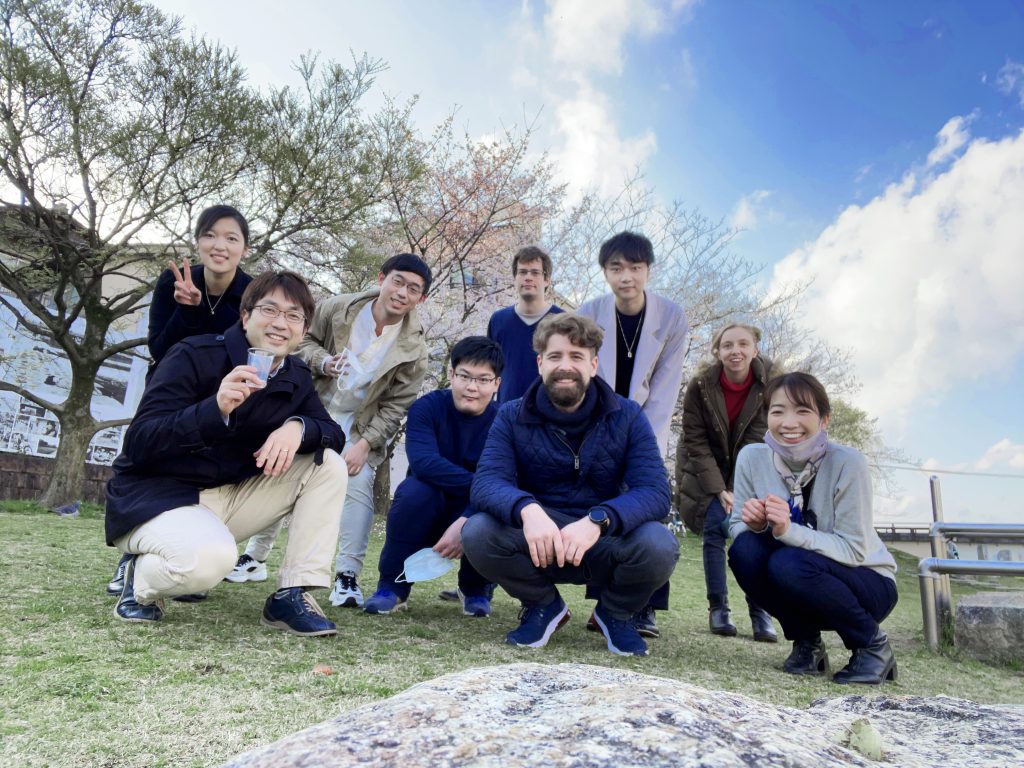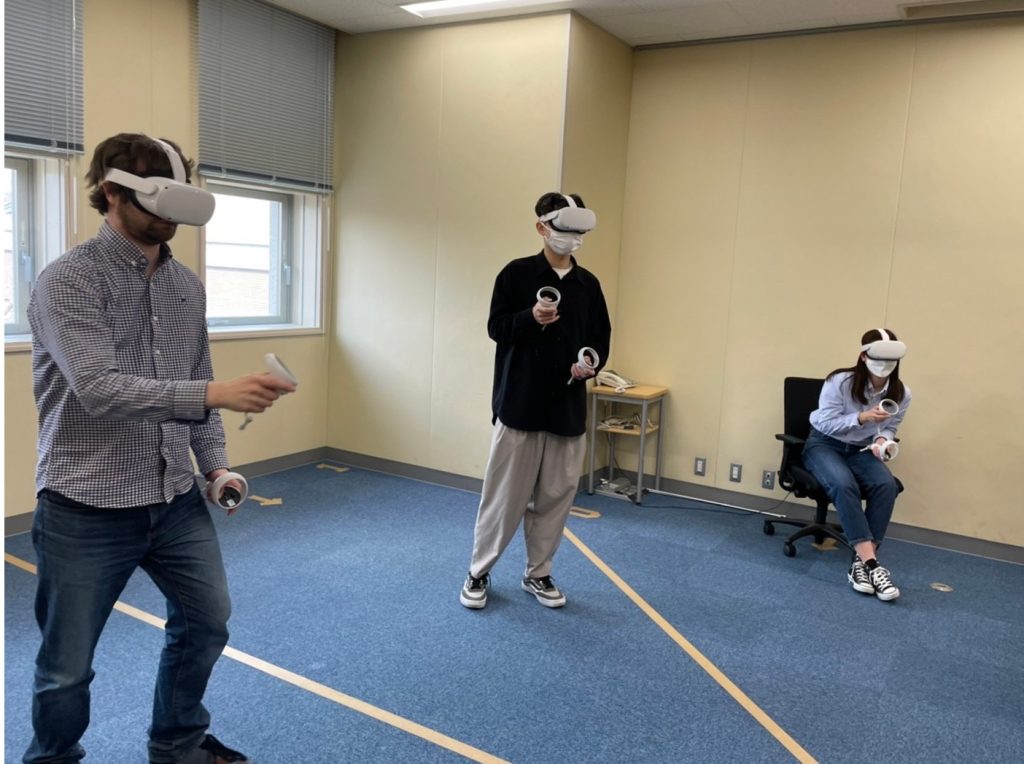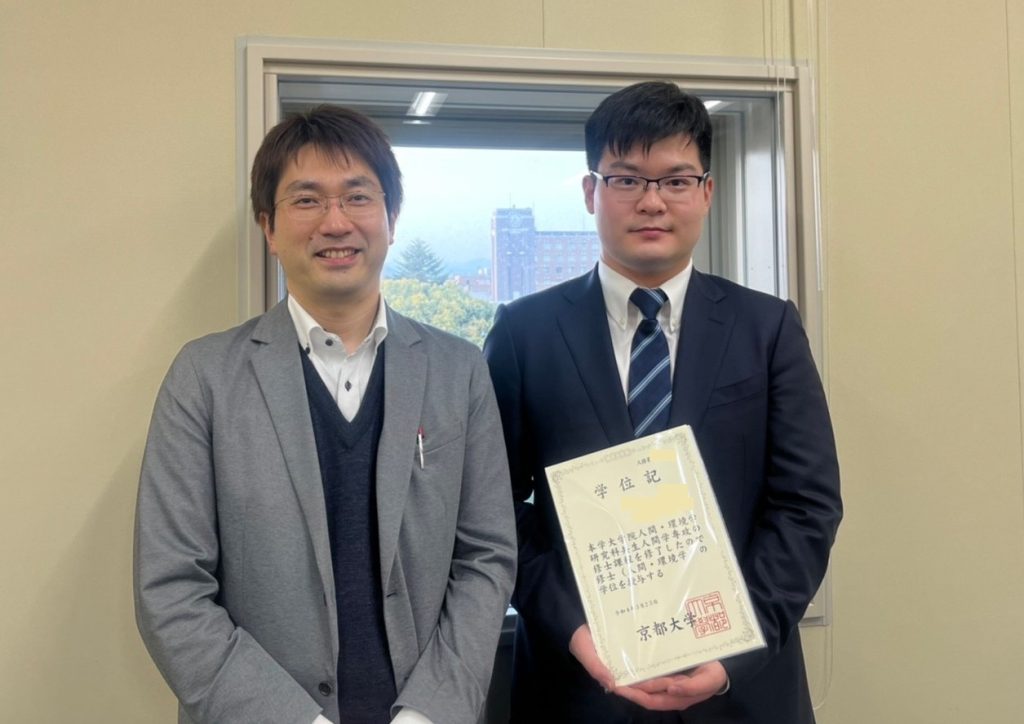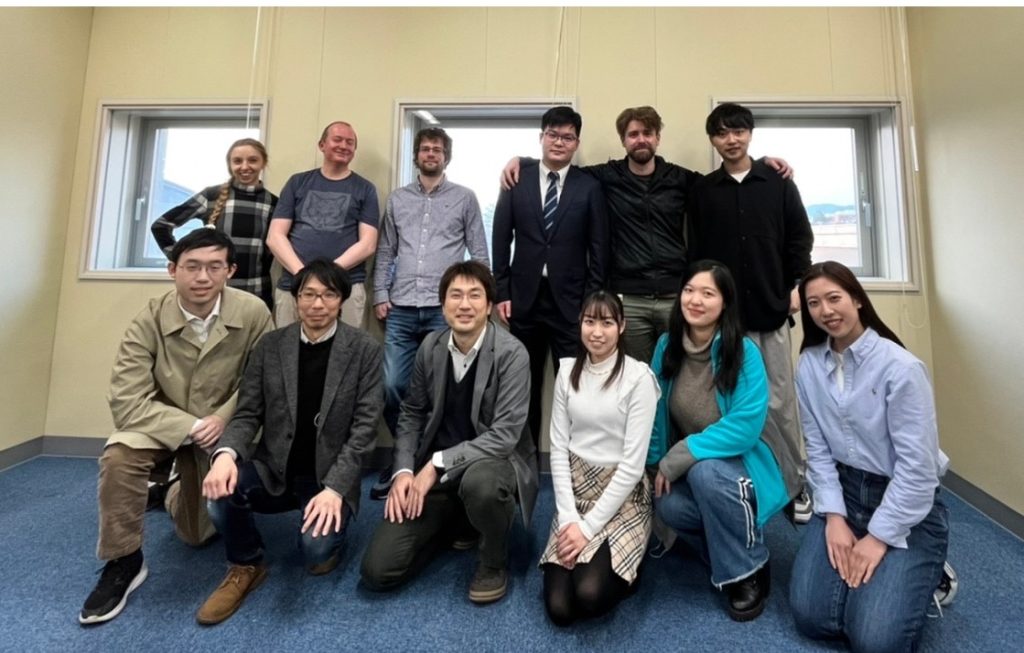I supervise students in MA and PhD programs in Applied Linguistics at Kyoto University (Graduate School of Human and Environmental Sciences).
Ongoing Research by Current Students:
| Course | Topic |
|---|---|
| PhD | Effects of viewing EAP materials on second language vocabulary acquisition |
| PhD | The role of subtitle use in visual media-based vocabulary learning |
| PhD | Enhancing learners’ understanding of noun phrases |
| PhD | The contribution of collaborative learning in enhancing reading literacies at school |
| PhD | Language Learning in VR: Promoting Intuitive Vocabulary Acquisition and Productive Use through 3D Visual Dictionaries |
| PhD | Examining the impact of graded narrative texts on second language academic vocabulary acquisition, retention, and learner motivation |
| MA | Development of deep-learning based language study support systems |
| MA | The Polysemous Use of Light verbs in School Textbooks for Japanese English as a Foreign Language Learners |
Student Publications
Journal Articles
- Lecailliez, L., & Vincent, N. H. (2021). VeRdict: Imbuing VR Language Learning Applications with Dictionary Functionality. Proceedings of 2021 7th International Conference of the Immersive Learning Research Network (iLRN), 136-138.
Oral/Poster Presentations
Student Theses
MA Theses
- Wang, Yaoxuan. (2022). 日本語二字漢語とその構成漢字の意味的透明性―高頻度語に焦点をあてて― (Semantic transparency between two-character kanji compounds and their individual componential kanji: A focus on high-frequency words)
- Vincent, Noel Harris. (2021). Vocabulary learning in VR: How hardware and software interfaces influence word memorization.
A Message for Prospective Students
If you are interested in enrolling in an MA or PhD program and pursuing research in the field of foreign language education, please consider joining our lab! We are a growing group of researchers investigating a wide-range of topics from both theoretical and practical perspectives.
Foreign language education research is an interdisciplinary field where knowledge of adjacent fields (linguistics, psychology, statistics, information technology, pedagogy, sociology, etc.) is often required. In addition, educational practice is equally important as contributing to theoretical understanding. More than just teaching in class; educational practice includes development/operation of language-learning programs, development of teaching materials, development of evaluation systems, and teacher training. This laboratory aims to produce excellent researchers who can make significant contributions to theories of applied linguistics, as well as excellent practitioners who have a deep academic knowledge of foreign language education.
If you are considering taking the graduate school exam, please contact me here after confirming that you meet the qualifications. (When applying for a master’s program, you may contact in advance, however, it is not a requirement for taking the entrance exam.)
MA Program
- Have acquired a wide range of knowledge related to applied linguistics (linguistics, psychology, statistics, information technology, pedagogy, sociology, etc.);
- Have excellent writing ability required for taking research notes, writing term papers, and completing their master’s thesis;
- Investigate a topic that is relevant to my research area;
- Read some of my publications
- Have a deep knowledge and high proficiency of the language to be studied
- Have high proficiency in Japanese necessary for paperwork and communication with office staff and university colleagues.
PhD Program
If you are considering entering a doctoral program, please make sure that the following conditions are met:
When making contact, please prepare a CV (free format), a list of publications (categorize them as (i)papers, (ii)oral presentations, and (iii)others), and a research proposal (A4 size, 2 sheets). A research proposal must be written in English (if you study English education) or Japanese (if you study non-English education).
- Have a master’s degree in applied linguistics (or are expected to obtain one by time of enrolment);
- Published papers from peer-reviewed journals (or has equivalent research and writing ability);
- Study a topic that is relevant to my research area;
- Include citations to some of my publications in your research proposal
- Have a deep knowledge and high proficiency of the language to be studied;
- Have sufficient time for doctoral research and lab activities; and
- Have high proficiency in Japanese necessary for paperwork and communication with the office.
Research Students (Non-Degree Program)
The purpose of this program is to conduct research under your academic advisor. This is not a degree program and you cannot obtain a degree or earn credits. To be accepted as a research student, you must submit a research proposal for the period as a research student.
This program is not suitable for preparing for the entrance examination. To enroll in an MA or PhD degree program, you must pass an entrance examination. Enrolling as a research student does not give you an advantage in admission to a degree program. You can also take the entrance examination for an MA or PhD program without being enrolled as a research student.
If you graduated (or will graduate) from a foreign university, please first inquire about your eligibility at the Admissions Assistance Office (AAO) before contacting me. For details, please see the website of the Graduate School of Human and Environmental Studies.
https://www.h.kyoto-u.ac.jp/entrance_exam/gr/application/
The materials submitted to AAO are examined carefully. Your application will be rejected if the research topic is not relevant to my research area, or if there is no room for accepting new students.
Official Information about Admission
Entrance examinations are administered twice every year. See the website below for further information. (Mostly written in Japanese. An English version is available for the “Application Guidelines for the PhD Program”).
https://www.h.kyoto-u.ac.jp/entrance_exam/gr/application/
Guidance Session for Entrance Exam
The guidance sessions for the entrance examination are held twice a year (mostly in Japanese). These sessions are managed by the Graduate School of Human and Environmental Studies at Kyoto University. You will also have the opportunity to talk directly with faculty members.
・Date/Time (next round): April, 2023
・Venue: Online (Zoom)
Registration is needed beforehand. See below for details.
Lab Activities
In general, I have monthly one-on-one research meetings with each student. We also hold a lab seminar once every few months. Lab members will present their research for productive feedback.




